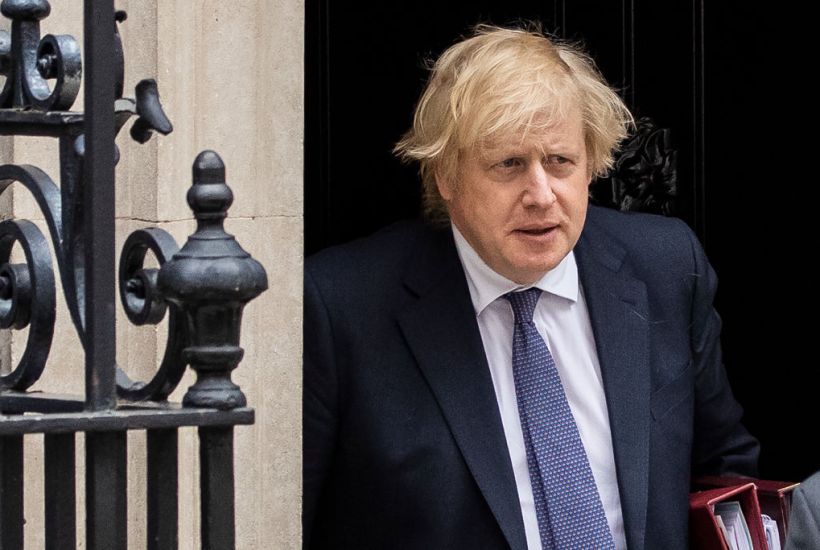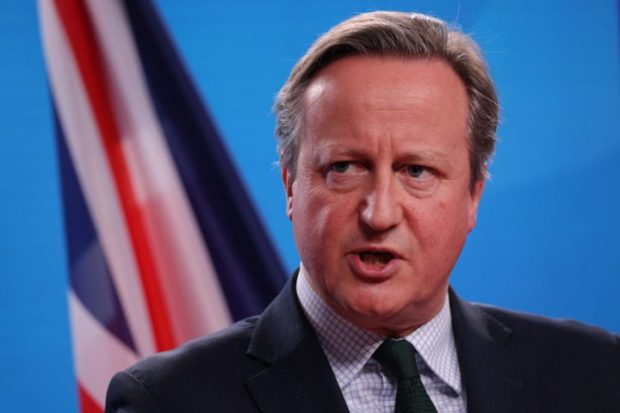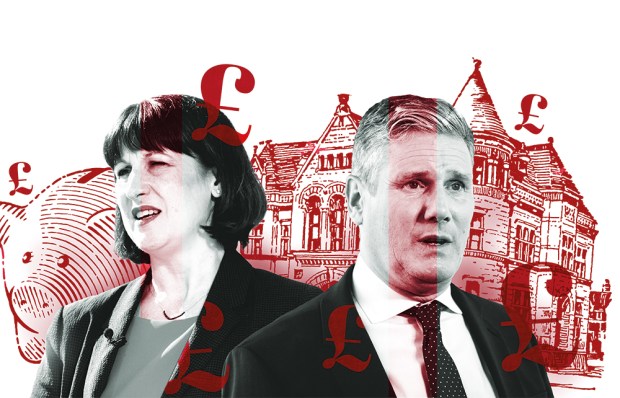Boris Johnson’s statement that ‘there is no such thing as a border between England and Scotland’ is born of ignorance and neglect. In a legal sense, there is and always has been a jurisdictional boundary separating the two nations. It is what has made a separate legal system possible and the divergent laws and regulations that come with it. It is why homosexuality was still a criminal offence in Scotland until 1981, 14 years after decriminalisation in England and Wales, and why Gretna Green became an improbable destination for eloping English teenagers. The Prime Minister may have been speaking rhetorically — he does that a lot — and rejecting the notion of Scotland and England being separate sovereign entities but it’s another example of Boris turning up for a tutorial without having done the reading.
His remarks have enraged Scottish nationalists, or at least the few who don’t exist in a permanent state of rage, and that will endear him to committed Unionists. Yet those are the people who should be the most displeased. Boris talks blithely about the Union because he doesn’t understand it, or at least what it has become under legislative devolution. The structures and issues may be different in the capital but it’s damning that two terms as mayor of London seems to have taught him nothing about the tensions between central and regional government.
Boris may be a symbol of how remote the Conservative government at Westminster has become from Scotland but the problem by no means started with him. The Conservatives opposed devolution in 1997 — with hindsight, probably the right call — but since then have grown awkwardly entangled in its machinations, unsure whether they want to make it work or even believe it can be made to work. There is no such thing as a Conservative position on devolution; there is opposition, followed by concessions, followed by bitter regrets. There are plenty of options available. They could fully embrace the model practiced by the SNP, Greens and parts of the Scottish Labour Party, in which devolution is a form of ever-weaker Union that either should or could lead to independence.
On the other end of the see-saw, they could resolve that devolution has been a disastrous experiment and campaign for a return to the status quo ante Blair. Or they could try to correct systemic flaws by recalibrating the devolution settlement so that decisions about and delivery of policies on health, education and justice continue to be made at Holyrood while making it harder for the SNP to use the Scottish Parliament as a Trojan horse against the Union. Alternatively, they could follow other parts of Scottish Labour and many Lib Dems down the federalism cul-de-sac. (Federalism doesn’t work because England doesn’t care about it. As an ex-federalist, I am obliged to offer up mea culpas for ever clinging to its tempting logic.)
In the absence of a clear view of the country’s constitutional future, the Tories have drifted from the complacency of the Cameron years to the corrective snapback under Theresa May. It was David Cameron who conceded the SNP’s unilateral adoption of the term ‘Scottish Government’ — the Scotland Act 1998 created a ‘Scottish Executive’ — then enacted the Nationalists’ preferred terminology in statute. It was Cameron who, with the encouragement of the Scottish Tories, handed the SNP a tranche of new powers in 2012 then gave them a referendum and rewarded them for their defeat with yet more powers. His successor took a different tack, brusquely swatting aside Nicola Sturgeon’s demands for another referendum and giving voice to a more muscular Unionism than had been heard from the Conservatives since the 1990s. It’s not clear which of these approaches Boris hews to or whether he will carve out a path of his own.
Boris’s ‘New Deal’ (spoiler: not a New Deal) includes a plan to use the new Shared Prosperity Fund to invest directly in Scottish infrastructure projects. This is a very good idea, not least because I had argued for him to do just that, most recently in March. That Michael Gove has been put in charge of a Cabinet sub-committee on Union policy is the best thing Boris has done since saving the country from Jeremy Corbyn. But bunging a few quid to Scottish builders and putting someone who gets it in charge of a policy group is nowhere near enough. I have banged on for long and weary about the growing threat to the Union. I thank Speccie readers for their forbearance but absent a fundamental rethink on the constitution, I expect to be banging on about it more the further we slide down the slippery slope.
If the Prime Minister is frustrated by the Scottish Government exercising its lawful powers under the devolution settlement, wait till he finds out just how many powers that settlement grants them — and how many they are attempting to accrue via stealth by making policy in reserved areas like foreign affairs. Sooner or later, Boris will have to face up to the flaws of devolution and the threat they pose to the future of the United Kingdom. If he does so sooner, he might be able to stave off the drift to Scottish secession. If he leaves it too late, he may be remembered not as the man who delivered Brexit but as the prime minister who presided over the managed decline of the Union.
Got something to add? Join the discussion and comment below.
Get 10 issues for just $10
Subscribe to The Spectator Australia today for the next 10 magazine issues, plus full online access, for just $10.




















Comments
Don't miss out
Join the conversation with other Spectator Australia readers. Subscribe to leave a comment.
SUBSCRIBEAlready a subscriber? Log in